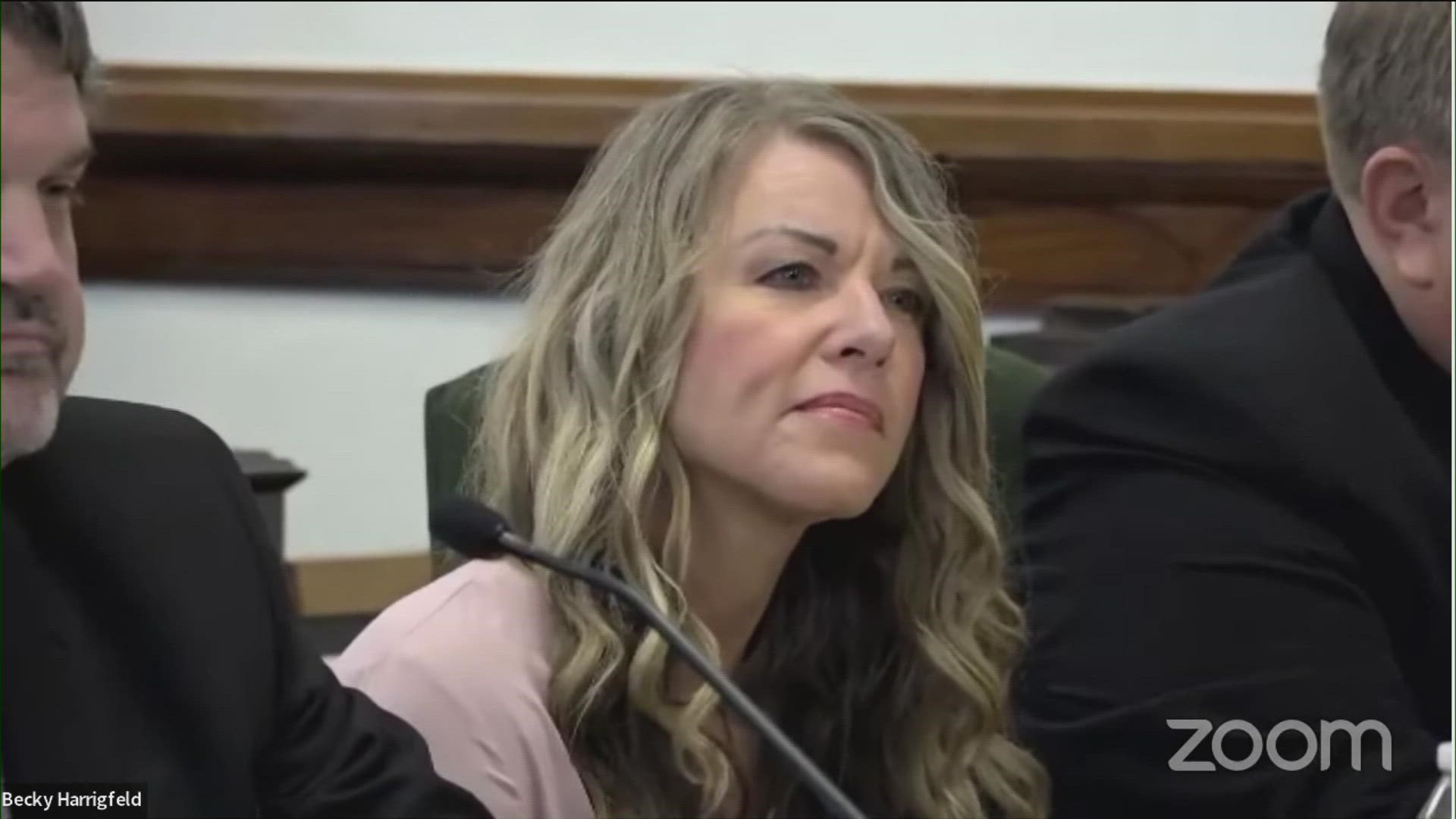ST ANTHONY, Idaho — The public may not be able to watch the Lori Vallow trial -- it may be up to the reporters physically present to relay to the public what is happening minute-by-minute.
In a hearing in Fremont County on Thursday, Judge Steven Boyce heard arguments to consider whether or not to ban cameras from the courtroom during Vallow's trial, which will take place in Ada County in January of 2023.
Vallow's defense filed a motion to ban those cameras after they said Court TV hooked up microphones at their desk and recorded private conversations between Vallow and her attorneys during an Aug. 16 hearing.
Social media erupted with speculation surrounding Vallow's reactions during that hearing, which showed her laughing and smiling while talking with her lawyers.
Her defense said the media "zoomed in" on her face to create a certain perception of her in the public eye.
"What's the point other than to mock her, make fun of her, humiliate her?" Her defense said.
Vallow and her husband Chad Daybell are set to stand trial beginning January 9 on murder charges in connection with the deaths of Vallow's children, Tylee Ryan and Joshua "JJ" Vallow, and Daybell's late wife, Tammy Daybell. Vallow and Daybell both pleaded not guilty to the charges.
In the hearing, the defense said they would like to see a fair trial, and the media coverage surrounding the case will make that nearly impossible.
“We all have the same obligation to Lori Vallow-Daybell, and that's to make sure her rights are protected, including the rights to a fair trial.”
State prosecutors seemed mostly in agreement with the defense, where they said pre-trial broadcasting could lead to a prejudiced jury. They also said the trial was already moved to Ada County due to extreme publicity, and if they have to move it again due to more of that publicity, it will cost extra taxpayer money.
The state recognized that the media has a right to be in the courtroom, but that broadcasting and cameras are up to the discretion of the judge. Cameras are not allowed in the U.S Supreme Court and lower federal courts as well as some state courts.
Attorney for the nearly 37 interested media parties, Steve Wright, said that regardless of how the public perceived Vallow's reactions, her reactions are still in the interest of the public, which they deserve to view.
"Which is more appropriate, an actual showing of the proceeding itself… Is it better to allow the proceedings to be shown… Or is it better to require someone to be physically in the courtroom so they have to report on the proceedings?” Wright asked.
Judge Boyce seemed to be in agreement with the state and the defense. He said he is very concerned the cameras in the courtroom go beyond public interest and into "financial enterprise," as well as the fact the public can gauge every reaction from Vallow and make their own assumptions from there, which can prejudice the trial.
Amid all the arguments heard in court today, a documentary about the Vallow case called "Sins of Our Mother" just aired on Netflix on Sept. 14.
Judge Boyce will issue a written decision at a later date.
Watch more on the case of JJ Vallow and Tylee Ryan:
See all of the latest coverage in our YouTube playlist:

